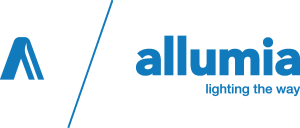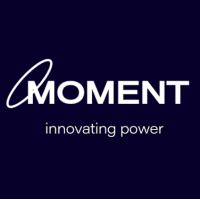
Learn more about our 2021 Presenting Companies below! Click here to register for the 2021 CleanTech Innovation Showcase.
Astrolabe Analytics: Astrolabe’s mission is to accelerate battery innovation. The company develops algorithms and IT infrastructure to help battery engineering teams make the most out of the data they generate, shorten the battery product development cycle, and ensure that their battery product meets their customers’ safety and performance criteria.
Astrolabe Analytics has generated early customer revenue and to date raised $500k in nondilutive funding from Amazon, the Air Force, and the National Science Foundation.
Allumia: Allumia provides a program for utilities to meet and exceed their energy efficiency goals, generate an additional source of revenue, and expand services to C&I customers, including to the commonly underserved small and mid-sized business market. Allumia is currently running the program for some of the largest utilities in the U.S., including Duke Energy and Ameren and has completed projects in over 25 states. Allumia’s Commercial & Industrial Energy Efficiency Program, supported by our proprietary Skylight software and IoT platform, streamlines the design, funding, installation, management, and maintenance of energy conservation measures (ECM’s). The result is that C&I projects as small as $20,000 become cost effective to build as Efficiency-as-a-Service (EaaS) offerings. From small to large, all projects become more profitable with Skylight and result in better energy savings and cost outcomes by following Allumia’s platform-driven value engineering process.
Clobotics: Cloblotics Wind Services provides drone-based inspections of wind turbine blades. We use artificial intelligence and custom programming to automatically fly around all three turbine blades gathering very high-resolution images and associated metadata. Clobotics then uploads that data to its machine-learning based back-end system that automatically identifies defects on the blades and summarizes the results in a report delivered within days through its online portal.
EarthUp: Historically, companies have reported their emissions into three categories – Scope 1, 2, 3. These “Scopes” allow organizations to understand the emissions that they generate at their facilities, through their supply chains, and employee travel. What the current methodology does not account for is employees emissions outside the office. EarthUP, along with out launch customers, are pioneering Scope 4 – Employees emissions and overall environmental impact outside the office. EarthUp believes that the triple bottom line begins at home – People, Profit, Planet. Once companies engage their employees to reduce their impact, they align employees to the company brand and mission while supporting the sustainability of the communities their employees live in. EarthUP’s SaaS platform make this accessible for sustainability teams of any size.
Ecellix: Ecellix’s Product is a very high energy density material, eCell, that will be used to build new anodes, the negative terminals of LithiumIon Batteries (LiB) energy cells and battery packs. eCell is a globally patented, unique, innovative material structure and fabrication process. Its process begins with inexpensive commodity materials and uses a simple subtractive manufacturing process to create a micro-porous, silicon-carbon composite material. Known competitors use exotic materials and a complex fabrication process to produce a nano-porous silicon-carbon composite material. Both approaches produce Si/C anode materials that offer energy density and cycle life attributes that are desired by LiB manufacturers. However, micro-porous, silicon-carbon composite materials have attributes that make them more readily integrated into existing anode and battery manufacturing processes. Ecellix’s sustainable competitive advantages are input materials unit cost and manufacturing process simplicity.
FREDsense: FREDsense is a water instrumentation company building portable field kits for rapid analysis using the power of biology. The company’s technology allows water operators and environmental consultants to quickly and accurately measure contaminants in real-time without the need for off-site labs. Its solution for arsenic has been tested by North American water utilities and has strong project partners established to become a platform for water quality measurement.
Hexas Biomass: Hexas produces plant-based raw material from proprietary Xano Grass™. It sells Xano Grass™ fiber to its customers. Xano Grass™ is an EPA-approved bioenergy crop that is fast-growing, yields 25-35 dry tons of biomass per acre, is highly pest-resistant, grows in different climates and soils, tolerates drought, and sequesters more carbon than trees. Xano Grass™ fiber can be used in bioenergy production, composite/engineered materials, structural and non-structural products, pulp and paper, biochemicals, bioplastics, and numerous other applications. Xano Grass™ production costs are significantly less than other biomass, it can be produced in a wider variety of locations, and it has applications that extend beyond the capabilities of wood, bamboo, and hemp, for example. Xano Grass™ does multi-duty by providing multiple ecosystem services, bioremediation, and carbon sequestration capabilities that can be monetized through carbon credits/offsets and ecosystem services.
Hydrobee: Hydrobee SPC was founded in Seattle in 2013 to develop new technologies for personal renewable energy. The company has been working on Thermo-Electric Modules (TEGs) since 2015 and has a working TEG that makes power from stove chimneys. Over 500 have been sold. Now Hydrobee has a new venture with the University of Houston, and a new way to use heat pipes to bring heat to our generator from as much as 10 feet away. Hydrobee can convert any gas or biomass stove into a USB power generator in about 5 minutes, for under $50 cost of production.
InteliGlas: The company has created a virtual building engineer, InteliGlas Ripley AI™. This is a master systems integration platform that puts building operations on auto pilot. Ease of use and cybersecure, that brings comfort and saving. Additional benefits include mitigating risk, empowering tenants, and alleviating management stress. Results are 30% to 40% in energy savings, with carbon reduction also resulting in healthier work environments. Target markets are commercial office buildings, medical offices, large schools, and government facilities.
Kontak: Kontak has patented a method for releasing hydrogen from ammonia with 95%+ efficiency (USPTO #10,207,241). The hydrogen is fuel cell purity with a projected weight-by-weight of 17.5%. Kontak has also patented devices for storing and distributing two-way chemical carriers, such as toluene. The Kontak carriers are stored at normal temperatures and pressures and do not embrittle carbon steel containers. Lower vessel costs allow hydrogen to be made available in the forecourt for less than $7.00 per kilogram.
Hydrogen stored on liquid carriers replaces gasoline and diesel in a very wide range of transportation and green energy storage applications. Kontak’s initial target markets are fuel cells for buses, forklift trucks, Class-8 trucks, locomotives, and commuter aircraft. Hydrogen can also be combined 50/50 with diesel to reduce legacy vehicle emissions. Each of the enumerated applications represents a market of a billion or more dollars for Kontak’s patented Hydrogen Release Modules, Modular Fueling Station and the sale and distribution of Kontak’s liquid carriers.
Moment Energy: Moment Energy is a cleantech company creating sustainable energy storage systems for microgrid, commercial and industrial customers. Its solution helps with peak energy demands and can be paired with any renewable source to solve energy intermittency and increase energy reliability. As an impact-driven organization, Moment creates its solution with second life electric vehicle (EV) batteries, where it provides a reliable, environmentally-friendly, and price-competitive offering. Moment works with leading auto manufacturers to prevent toxic battery disposal in landfills and the mining of lithium for the creation of new batteries. The company has been featured on CTV & CityNews and won numerous awards, such as the Top Social and Sustainable Venture in the NEXT Canada 2020 Program and the Judges Choice and Clean Energy Award in the Alaska Airlines Environmental Impact Challenge. Moment is a MaRS and Foresight CleanTech Accelerator portfolio company.
Montana Technologies: Montana Technologies has developed a zero-energy penalty self-regenerating latent energy and water capture technology, dubbed “AirJoule”. When Broadly deployed in terrestrial residential and commercial buildings, and mobile transportation vehicles, AirJoule can reduce air conditioning energy consumption by 50% or more, depending on humidity, resulting in a reduction of greenhouse gas emissions by more than 50%.
Oxygen8 Solutions: Oxygen8’s mission is to create comfortable and healthy spaces for people to work, live and play in an energy-efficient way. Oxygen8 develops and sells semi-centralized and decentralized ventilation solutions with integrated heating and cooling, energy recovery, high MERV filtration and intelligent controls. With a focus on improving human health and building energy efficiency, the Oxygen8 low-profile, all-electric Dedicated Outdoor Air Systems feature electric Heat-Pump System integration, and high efficiency counter-flow enthalpy cores allowing for 100% fresh filtered air at ideal temperature and humidity levels. The company was founded in July 2019 and markets throughout North America for use in schools, office buildings, senior care facilities and multi-unit residential buildings. The company has 16 employees and is projected to have $2M in revenue this year. Oxygen8 has strategic partnerships with two of the world’s leading HVAC companies, Viessmann Group based in Germany and Daikin based in Houston, Texas.
Portable Electric: Portable Electric (PE) is a Vancouver-based technology company and manufacturer of the VOLTstack e-Generator, a clean energy alternative to traditional gas and diesel generators. In the last five years, these power stations have quietly charged past idling gas and diesel generators to become an industry leader in sustainability with silent, emissions-free electric generators. From small, nimble units capable of navigating disaster relief sites, to powerful stations capable of powering a construction site or holding up a Hollywood film shoot, Portable Electric sits at the forefront of innovative mobile energy needs.
Solaires: Solaires is in the business for a cleaner world. Its mission is to make solar energy more accessible by developing the next generation of solar cells and by contributing to reducing the planet’s energy footprint. Solaires aims to enable sun energy harvesting from anywhere by using our PVFilm (photovoltaic film) for multiple applications that exceeds our current imagination. The company, through its diverse team and being majority-owned by women, will positively impact our planet and community.
University of Washington STAR Lab: The University of Washington’s STAR Lab created a Mobile Unit for Sensing Traffic (MUST). MUST is a comprehensive sensing and communication equipment that can be used for real-time traffic and environmental sensing, data collection, V2X applications, roadway monitoring, and infrastructure security applications. Multiple sensors, including media access control (MAC) address detector via Wi-Fi and Bluetooth signals, video camera, and temperature and humidity sensors, etc., are integrated together to address the diverse needs of applications in smart transportation. Taking advantage of edge AI technology, MUST can detect moving objects promptly without the need of high bandwidth communication support. In addition, MUST can be configured as a communication node as a road-side unit for connected vehicle and other smart transportation applications.
WHYGRENE: WHYGRENE’s SaaS accelerates the sustainable energy transition by helping solve its greatest problem: the power supply and demand imbalance. WHYGRENE’s blockchain solution integrates solar plus batteries and EVs as Virtual Power Plants (VPP) by creating a market for utilities to buy and sell energy with their customers. With the app, customers can charge off-peak, then make money reselling power back to the grid during peak demand, while reserving energy when needed. WHYGRENE’s advantage is its unique combination of centralized AWS cloud and decentralized Hyperledger blockchain technology that provides customers with the best of both efficiency and security. Its proprietary consensus mechanism is more energy-efficient and affordable than other blockchain competitors’ because it only puts its transactions on the blockchain, allowing faster and more efficient computation. WHYGRENE is also more decentralized and transparent than its centralized competitors because its transaction data is tamper-proof. Utilities can save on infrastructure costs, access targeted grid services, and more easily comply with regulatory mandates, such as the Clean Energy Transition Act (CETA) and FERC 2222. DER owners can earn a profit for providing grid services, including frequency management and price arbitrage, optimally buying and selling energy.
















